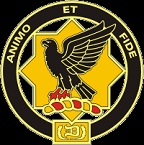IronDuke_slith
Posts: 1595
Joined: 6/30/2002
From: Manchester, UK
Status: offline

|
Interesting thread.
There seem to be several questions. I don't want to duck any, so please feel free to pull me up if I miss anything.
1. Would a US landing on 3 beaches have worked.
2. Would the US have been able to pull off a five beach assault and sustain a NW Europe Campaign into Germany
3. Would the US have reached Caen on day one.
Firstly, we have to assume for any of this to be possible that the RN and RAF assets deployed in reality will be deployed in support. I don't think it was possible otherwise, although you might suppose a three beach assault was possible without British support. I personally doubt it very much, so we have to assume the RN deploys everything they did and the RAF does likewise. This isn't a great leap really, so no problem assuming it.
Firstly, three beach landing.
This would never have worked. The original COSSAC plan back in 43 (IIRC) supposed a three beach assault and Montgomery rewrote the plan entirely when he was appointed 21st Army Group Commander. To be fair, it wasn't rocket science to recognise the three beach issues and Eisenhower concurred completely.
You have two basic issues. At one end of the proposed landing area lies Caen, the rail and road centre, and the place most German reinforments will come through. At the other end in Cherbourg lies the deep water port you believe you need to ensure the campaign's success, particularly in a logistics heavy Army like the US Army. Of the five beaches used, any combination of three presents problems. Assault Sword, Gold and Utah, and you are too strung out. By D-Day + 3, 21st Panzer, 12th SS Panzer and Panzer Lehr are all probing the gaps, or even worse, concentrating against one beachhead and giving it a bad day. Take Omaha, Gold and Juno and you are too narrow and threaten neither of the two key objectives the first phase of the campaign requires. The flooded area around Carentan presents a barrier to attacking Cherbourg and Caen is out of reach since the German front is quicker to solidify as it is shorter.
Concentrated Naval gunfire might keep the beachheads alive, but at night all hell is going to break loose and I think casualties would be horrendous. A narrow bridgehead also gives German artillery a more target rich environment than they otherwise got. It is also quicker and easier to seal off, and you get less space to deploy in meaning a slower build up.
I don't believe three beaches would ever have worked.
Turning to an American five beach assault. This depends. I think the US only had 6-7 Divisions in Italy in May 1944, 21st Army group deployed 16 Commonwelath Divisions to Normandy (IIRC). You could accelerate the arrival of some of the American divisions that did eventually arrive in the Autumn and winter, but these were all green formations, and I wouldn't like to have to predict what would have happened had their training been in any way hurried or curtailed. Bradley deployed (probably) enough troops eventually that if he had kept the Free French and another Army from Italy might have got the job done but I have my doubts.
Remember, American units rarely got rested in NW Europe in Paris or Marseille, they tended to get sent to quiet portions of the line (a la Bulge). A longer front would only have exacerbated this problem. Also, many of the British Divisions involved had been training for a long time, and at least three (albeit with varying combat records when they got ashore) had extensive combat experience replacement American units wouldn't have matched (50th Infantry, 51st Infantry 7th Armoured).
As others have noted, you need another Airborne formation, Sword beach (and by extension Caen) wasn't on without airborne troops dropping east of the Orne. I'm not sure 17th Airborne would have been ready.
You could have put the whole thing off to facilitate an American build up, but if you weren't going in the Summer of 44, I'd argue there was no point going at all.
Finally, we have Caen. I have to say from the outset, I don't think it was on to take the City on day one, and had the troops landing on Sword been American, I don't think it would have made any difference whatsoever.
Firstly, I don't see any evidence that American troops got off the beaches and into the hinterland any quicker than the Brits or Canadians. Leaving aside Omaha (which did count some intertia amongst the myriad of problems that beset it) the 4th Division on Utah moved inland quite slowly, against negligible opposition. I think it was in places at speeds of half a mile an hour, which against light or non-existant opposition was quite slow. The US 4th Division finished the day 4 miles short of it's D-day objectives. Judge that against their casualties and it rather illustrates the popular misconception that British troops somehow sat back on D-Day and failed to reach Caen because of timidity. The more formidable defences around Sword would not have done anything to increase 4th Division's speed.
All US units had trained using the same tactics and exercises, so we've no evidence anyone else would have been any quicker.
Turning to Caen itself, I think all talk of taking the City falls because of two basic reasons. (This assumes the Americans have resolved the problem alluded to above about securing their left flank across the Orne. ) Firstly, the defences in the British and Canadian sectors were often tougher than on Utah or even Omaha so quite how a US unit would have been quicker against these defences escapes me. Sword beach was well defended and had a well developed network behind it including a number of strongpoints.
Secondly, most of 21 Panzer's Panzer Regiment 22 and Panzergrenadier Regiment 192 was through Caen and west of the Orne by 15.00, perfectly placed to strike any Armoured spearhead blindly charging off Sword beach in the direction of Caen. Furthermore, the heaviest counter attack of the day was carried out by 21st Panzer in late afternoon, elements of which struck Sword beach and were beaten off. There was nothing slow or timid about the 3rd Division that day, and I don't think any Allied division in the Order of Battle would have done any better.
Finally, had anyone reached Caen, 12SS would have counterattacked in force the following day and I think retaken the place.
quote:
ORIGINAL: Major Destruction
1. The American 5th army had plenty of amphibious warfare experience in Torch and the landings on Sicily, Italy and Anzio. General Clark would have done a fine job on Gold and Sword
Clark should have been arrested (IMHO) after he took Rome rather than cut off the German troops retreating from the Gustav and Hitler lines in Italy. I don't share your confidence.
quote:
5. Good point. Perhaps there would be a rush to get the 17th AB Div operational - with less than satisfactory results. However, I am not sure the American glider regiments would not have performed as well on the East flank as did the British AB Div's but the resulting reduction in firepower support for the US parachute drops on the western flank would be hard to swallow.
This is a good point. There were elements of two american divisions on the American right soaking up all the German pressure in that sector (one of the reasons 4th Us infantry had it so quiet). If only one badly scattered and mis dropped airborne division had been there, things might have gone very badly around St Mere Eglise etc.
quote:
7. 3 beaches probably not a good plan from the POV of a Montgomery type of leader but the American armoured thrust could be more of a hard hitting punch and a "punch has no flanks"
Where do you punch from? When does the punch go? Armoured Divisions take time to get ashore in the numbers required for this, and beyond the beaches lay some of the most tank unfriendly country in Europe. It is no coincidence that the US broke out when the Germans ran out of defenders to put in front of them.
quote:
8. Some say the reliance of the Britsih on Mulberry actually slowed transfers of supplies. After the great storm, US deleiveries increased by using the same methods of ship to beach transfer as was practiced in the Pacific.
Not something I was aware of, although you might argue they were expending a lot more effort than usual to catch up with the schedule. I'm happy to concede the point, though.
quote:
9. Simpler supply with fewer ammunition types to deal with.
Yes, but I don't know anyone in Normandy ever really lacked ammo. Immense stockpiles were created for all the major offensives. It might have been a simpler supply situation, but not necessarily a better one.
quote:
and one more. Placing the US 1st Armoured Div on the beach in place of British 7th AD, might have resulted in less chance of a disaster like Villers Bocage. ...assuming they got off the beach on d-day.
Why? In the face of 88s American Armour disappeared as easily as British Armour. 7th Armoured had problems in Normandy, that can't be denied, but Villers Bocage was a tactical defeat. I don't know that anyone else would have escaped unscathed.
Regards,
IronDuke
_____________________________
|
 Printable Version
Printable Version






 ) US general had been tasked with taking Caen then then they could have done so, Patton would take Caen. but also with a different German response they could have been mauled badly and pushed back as well by over extending themselves.
) US general had been tasked with taking Caen then then they could have done so, Patton would take Caen. but also with a different German response they could have been mauled badly and pushed back as well by over extending themselves. 





 New Messages
New Messages No New Messages
No New Messages Hot Topic w/ New Messages
Hot Topic w/ New Messages Hot Topic w/o New Messages
Hot Topic w/o New Messages Locked w/ New Messages
Locked w/ New Messages Locked w/o New Messages
Locked w/o New Messages Post New Thread
Post New Thread